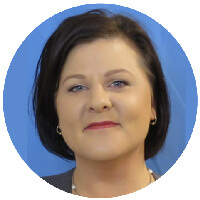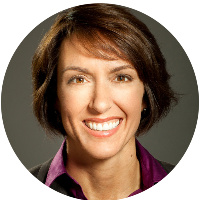Have you ever been asked the question, what advice would you give to your younger self?
With International Women’s Day just around the corner on March 8 — and March named Women’s History Month — we decided to pose this question to the women of First San Francisco Partners, asking them for the career advice they wish they’d received.
Here’s what they had to say.
Sarah Rasmussen, Principal Consultant and Collibra Practice Manager
 I’d ask, where do you see yourself in five years? and say to put some time into planning what that should look like — whether it is goals-based or feelings-based — so you will not look back with regret.
I’d ask, where do you see yourself in five years? and say to put some time into planning what that should look like — whether it is goals-based or feelings-based — so you will not look back with regret.
Don’t accept decisions made on your behalf at a golf game of which you were not invited to.
Formalize leveraging mentors, advisors and career coaches.
When you write, learn the concept of “killing your darlings,” removing extra, unneeded words for more impact.
If you’re considering stepping up to the challenge, don’t just do it because you are a competitor at heart. Make sure your energy and time are going toward something meaningful to you.
Mollie Celnick, Consultant

There are so many things I want to say to my younger self, but I think the loudest would be this: A bad day doesn’t mean you’re in the wrong place.
Expectations of constant optimism and energy are not sustainable; bad days are inevitable. Bad days may make you second-guess yourself but are critical experiences in building empathy and understanding your strengths and weaknesses.
Allow yourself to experience doubt, frustration and challenge without going to extremes and know you’ll be stronger for it.
Becky Lyons, Senior Consultant
 Collaboration means bringing together complementary skills to do amazing things, which yields better results than trying to do something on your own.
Collaboration means bringing together complementary skills to do amazing things, which yields better results than trying to do something on your own.
Everyone in the room knows the most about something, including you. Be confident in what you know and listen to learn more about what you don’t.
Identify the things you like doing at work. During career transitions, look for opportunities to spend more time doing those things in your next role.
Schedule time to plan your work for the week. If you don’t schedule it, you won’t do it and “failing to plan is planning to fail.”
It is critical to build a professional network. If you don’t like traditional approaches for networking, like networking events and using social media, think of different ways to connect with other professionals. Schedule time to meet with your friends and ask them to bring a peer you don’t know. Plan time every month to reach out to people you enjoyed working with in the past.
Teddy Lupu, Senior Consultant
Everything is figure-out-able.
Don’t hold back from stepping into roles that sound different than what you’ve done and think logically how to figure things out. There are always people to help you, things that have been written for it and skills you built before to help you figure things out. Trust your thinking-skills to build the knowledge you need over time.
Marcia Gray, Controller

Stop worrying about tomorrow and enjoy today!
Don’t overthink things — just go for it.
You have to work for a long time, so make sure you try out different careers to find the one that fits you the best.
Czarina Carden, VP of Marketing/Sales Ops
 Know your worth and believe in your potential. The reality is there will be plenty of external barriers and roadblocks in your path, so try not to let self-doubt, guilt and internal struggles keep you from growing. Be your own best advocate.
Know your worth and believe in your potential. The reality is there will be plenty of external barriers and roadblocks in your path, so try not to let self-doubt, guilt and internal struggles keep you from growing. Be your own best advocate.
Get comfortable with being uncomfortable (but honor your boundaries), because transformative growth will happen when you push outside of your comfort zone. Ask for that raise, advocate for that promotion, volunteer to lead that project and apply for that job, even if you’re worried you don’t meet all of the requirements. Experience is a great teacher, so aim for progress — not perfection.
Gretchen Burnham, Principal Consultant

When your gut is telling you that something isn’t right about your job situation, listen. Are you in the right role? Is your organization helping you to develop to the next level? Can you even tell what the next level is?
Taking career risks is scary, and not every risk pays off. But as long as even one risk pays off, it’s worth it. I especially think of this in the context of making career moves and changing jobs.
Michelle Harper, Senior Consultant

Each experience is an excellent learning opportunity that will provide growth in your career.
Be prepared to work hard, never stop learning, meet many great people, and contribute to helping others achieve success. There will always be hurdles; welcome these as they provide experiences that only real-world practice offers.
Natasha Pum, HR Manager/Executive Assistant
 You don’t need to have it all figured out. Not in high school, not in college nor your post-graduate career.
You don’t need to have it all figured out. Not in high school, not in college nor your post-graduate career.
I was so certain I wanted to be a nurse that in my senior year of high school, I started taking community college classes to get ahead of my studies. Once in college, I realized pretty early on (my first semester!) that I had no real interest in this field. Sure, I had friends and family who were nurses, and I had always been a natural caregiver. But aside from that, I couldn’t explain why I had the next several years of my life planned out to be a nurse.
Before my sophomore year began, I completely changed course (and my major). I dove right into English Literature, graduating with a triple concentration. I’ve since been published and in a past life was a creative director for a food magazine. Go with your gut!
Val Torstenson, Principal Consultant
 Work hard, have fun, make a difference … if you are working hard and having fun while doing so, you will make a difference.
Work hard, have fun, make a difference … if you are working hard and having fun while doing so, you will make a difference.
Always always always strive to deliver 150% — always try to raise the bar.
Remember that “truth” is only a matter of what you can prove, so be very cautious in meetings, presentations or anything that what you share can be backed up. The first time you share something that cannot be substantiated (or is wrong) and somebody challenges it, people will very quickly lose “trust,” and this is a perception that will take a very long time to change.
When confronted with a conflict, first listen to the other person, actively probe to show you are really listening — and second, try to find those areas where you can agree with them. Third, respectfully share where and why you disagree with them. Usually, this approach primes the process to find common ground and a good resolution. I have often found that this approach ends up with a better solution than what either side started with.
Strive for utility, not perfection! Perfection is the enemy of good enough.
Catherine Ruef, Consultant
 If I were to give my younger self career advice, it would be to speak up more!
If I were to give my younger self career advice, it would be to speak up more!
Looking back, now I realize that the thoughts and questions I was having were not out of the ordinary and probably would have been welcomed and helpful to others as well.
Kelle O’Neal, Founder and CEO
 Intelligence, experience and capability are more important than age. Being younger doesn’t mean you can’t excel at the job.
Intelligence, experience and capability are more important than age. Being younger doesn’t mean you can’t excel at the job.
Relationships are everything. It’s a small world and a long life. Make an effort to stay in touch.
If you want a promotion/new job, start doing the job first and show you can contribute — then you are better placed to ask both for the job and the increased compensation.
Callie Kinnan, Sales and Marketing Coordinator

Keep an open mind and trust that things will work out exactly as they’re supposed to.
What career advice would you give your younger self? Post your comment below, and we’ll share it with our team in our Slack #watercooler channel.


